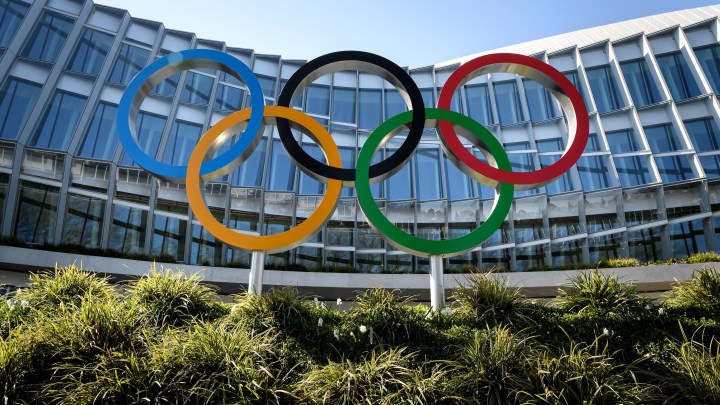
What a delay means for the Tokyo 2020 Olympics

We now know about the status of the Summer Olympics: Tuesday morning, Japan’s Prime Minister Shinzo Abe and International Olympic Committee President Thomas Bach agreed to postpone the Olympics by about one year.
This, just one day after IOC board member Dick Pound spoke to USA Today about the Tokyo games and suggested a postponement. “The games are not going to start on July 24, that much I know,” he said.
Sporting events the world over have already been cancelled as the novel coronavirus has spread. One reason the Olympic organizers held off for so long, says Smith College economist Andrew Zimbalist, is all of the money on the line.
“The International Olympic Committee is primarily looking at the dollar, and its relationships with NBC, other networks around the world and corporate sponsors, and [has] not been sufficiently attentive to the athletes’ needs,” said Zimbalist, author of the book “Circus Maximus: The Economic Gamble Behind Hosting the Olympics and the World Cup.”
He says athletes need to train in facilities — and compete in qualifying meets — that have been shut down thanks to COVID-19.
Amateur athletes will also need continued corporate support from companies like Nike and Adidas.
John Horan, founder of Sporting Goods Intelligence, says big brands are likely to keep up their sponsorships.
“They see the Olympics as a great time to introduce new product, and the world’s eye’s on them,” he said.
Horan noted that the Olympics aren’t nearly as important as soccer’s World Cup for generating sales. The next World Cup is in 2022.
There’s a lot happening in the world. Through it all, Marketplace is here for you.
You rely on Marketplace to break down the world’s events and tell you how it affects you in a fact-based, approachable way. We rely on your financial support to keep making that possible.
Your donation today powers the independent journalism that you rely on. For just $5/month, you can help sustain Marketplace so we can keep reporting on the things that matter to you.












